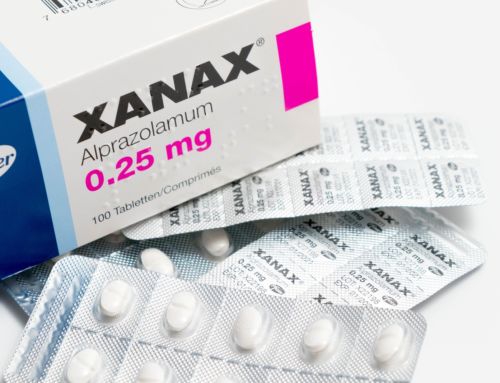The unique pressures that women within our society experience on a daily basis can sometimes seem endless and overwhelming.
From the constant barrage of beauty expectations to the varying roles woman embody – like mother, wife, partner, career woman and more – finding validation and comfort can sometimes prove rather elusive. That’s why it’s no wonder that some women begin self-medicating to manage the stress and pressure they experience.
The idea of masking negative emotional experiences and personal stress with alcohol is never a realistic long-term plan to manage those issues. However, in the moment, simply drowning sorrows or perceived shortcomings in alcohol may be the only thing that makes sense.
Common Reasons Why Women Drink
From 2001 to 2013, the prevalence of alcohol use among women living within the U.S. rose nearly 16 percent. During that same time period, the percentage of women who consumed four or more drinks on a given day, on a weekly basis, shot up 58 percent.
The reasoning behind this trend was marked by the significant pressures placed upon women, including:
- Career pressure
- Financial pressure
- Needs of their kids
- Needs of senior parents
- Aging bodies
- Adjusting to an empty nest
- Trauma (especially sexual abuse) (1)
While these were just a snapshot of the unique stressors experienced by women, they highlight the wide variety of stress that women endure on a consistent basis.
Signs of Alcoholism in Women
Recognizing the warning signs of an alcohol use disorder is so important when addressing the issue and beginning the process of recovery. While the actual signs of alcoholism in women can vary, some of the more common indicators that a genuine issue exists are easy to spot if you know what to look for.
Common signs can include:
- Drinking takes place in every area of life – If a person is drinking when they are happy or sad, celebrating or unwinding, feeling up or feeling down, then the issue is probably larger than they think. Using alcohol to cope with life is a recipe for disaster, and that much drinking can quickly result in a full-blown alcohol addiction.
- Consuming alcohol impacts her personality – If your loved one is known to “change” when she’s drinking, it’s a good sign that her alcohol use has taken on a mind of its own. She may go from being a kind, sweet person to being mean and verbally abusive after just a few drinks. Or, she could change from being shy and quiet to being loud and aggressive. She could become overly emotional when drinking, while – when sober – she rarely expresses any emotions. However, the transformation takes place, if there is a noticeable shift in her personality and demeanor, consider it an obvious warning sign.
- Forgetting details and “blacking out” is not uncommon – Alcohol disrupts activity in the hippocampus, a region of the brain that plays a key role in the formation of new memories, and the more you drink, the more impaired your memory becomes. Blacking out can happen if you drink on an empty stomach or you down several drinks in quick succession. But when it’s a regular occurrence, this is a significant indicator that a deeper issue exists. (2)
These are far from the only warning signs that indicate an alcohol abuse issue exists, but they are common among women who struggle with alcohol addiction.
The important thing is to make yourself aware of any obvious changes in your loved one’s actions and personality when they are drinking. This enables you to identify concerning patterns of behavior and intercede when necessary.
Women and Alcohol: What You Need to Know
The fact of the matter is alcohol abuse is significantly different for women. It can result in a wide variety of physical health issues and regularly increases their problems. Understanding how alcohol abuse impacts your loved one’s overall well-being is essential to helping them address their addiction and begin their path toward recovery.
Some of the more concerning health issues specific to women dealing with alcohol addiction include:
- Liver Damage
Women who regularly misuse alcohol are more likely than men who drink the same amount to develop alcoholic hepatitis, a potentially fatal alcohol-related liver condition. This pattern of drinking can also lead to cirrhosis (permanent liver scarring). - Heart Disease
Long-term alcohol misuse is a leading cause of heart disease. Women are more susceptible to alcohol-related heart disease than men, even though they may consume less alcohol over their lifetime than men. - Brain Damage
Research suggests that alcohol misuse produces brain damage more quickly in women than in men. In addition, a growing body of evidence shows that alcohol can disrupt normal brain development during the adolescent years, and there may be differences in the impact of alcohol on the brains of teen girls and boys who drink. (3)
Luckily, you have the ability to provide the support and guidance needed to help your loved one deal with their alcohol addiction and begin helping them make strides toward a healthier lifestyle.
However, you go about discussing your concerns with your loved one, making it a priority to initiate the conversation and address their addictive behaviors is the first step. Take the time to research quality treatment facilities with clinically trained and licensed staff that can best address your loved one’s addictive behaviors.
This enables them to confidently begin their process toward recovery, knowing they’ll have the full support of their family along the way.
Holistic Alcohol Addiction Treatment at Ranch Creek Recovery
Alcohol has no power over your loved one, and from the moment they take their first step toward sobriety, we will be with them throughout the entire journey and into sobriety. At Ranch Creek Recovery, we provide holistic detox and alcohol recovery treatment that delivers personalized and long-lasting care.
Learn more about Ranch Creek Recovery’s alcohol addiction treatment program and rehab approach or contact us today to get your questions answered.
Resources:
1) Center for Disease Control and Prevention. Excessive Alcohol Use and Risks to Women’s Health. Accessed March 5, 2020. https://www.cdc.gov/alcohol/fact-sheets/womens-health.htm.
2) National Center for Biotechnology Information. Converging Patterns of Alcohol Use and Related Outcomes Among Females and Males in the United States, 2002 to 2012. Accessed March 5, 2020. https://www.ncbi.nlm.nih.gov/pubmed/26331879.
3) National Center for Biotechnology Information. Sex and gender-related differences in alcohol use and its consequences: Contemporary knowledge and future research considerations. Accessed March 5, 2020. https://www.ncbi.nlm.nih.gov/pubmed/26371405.













